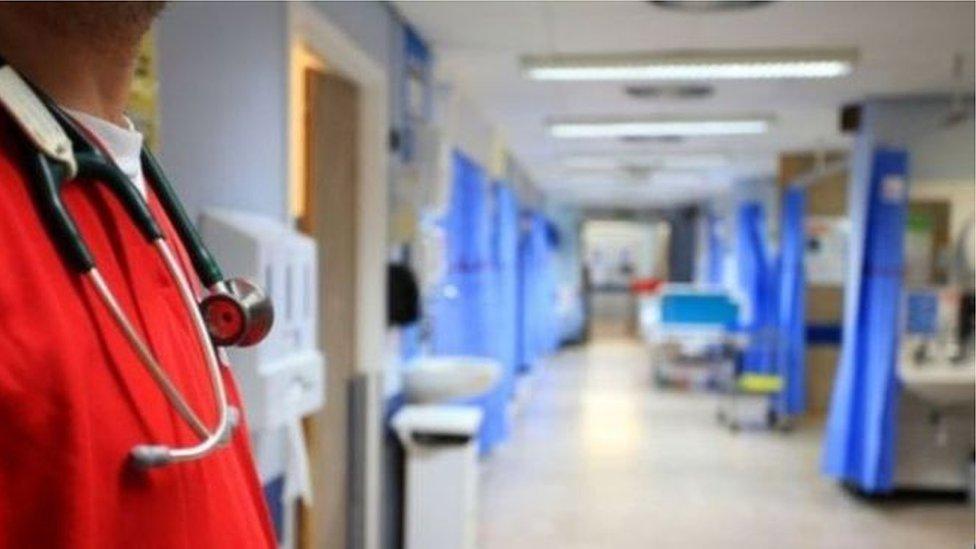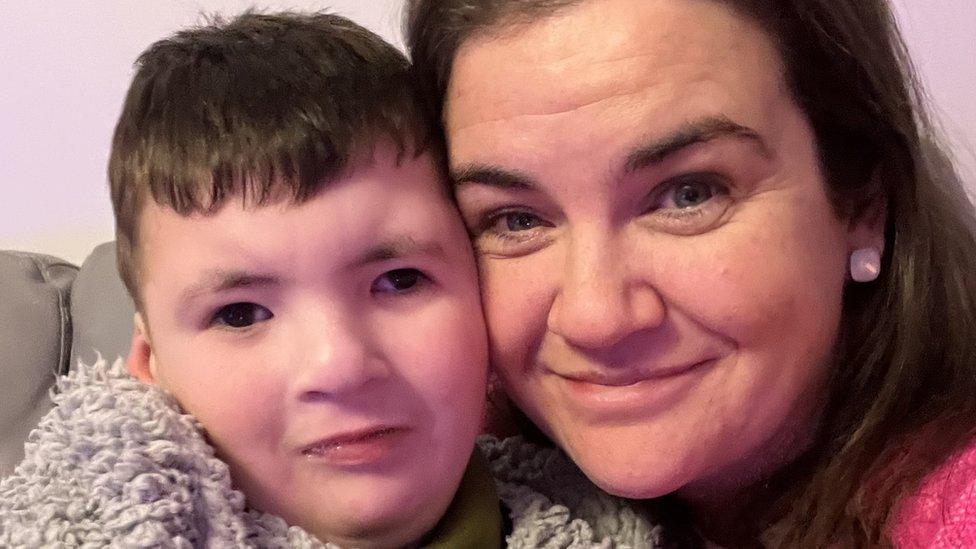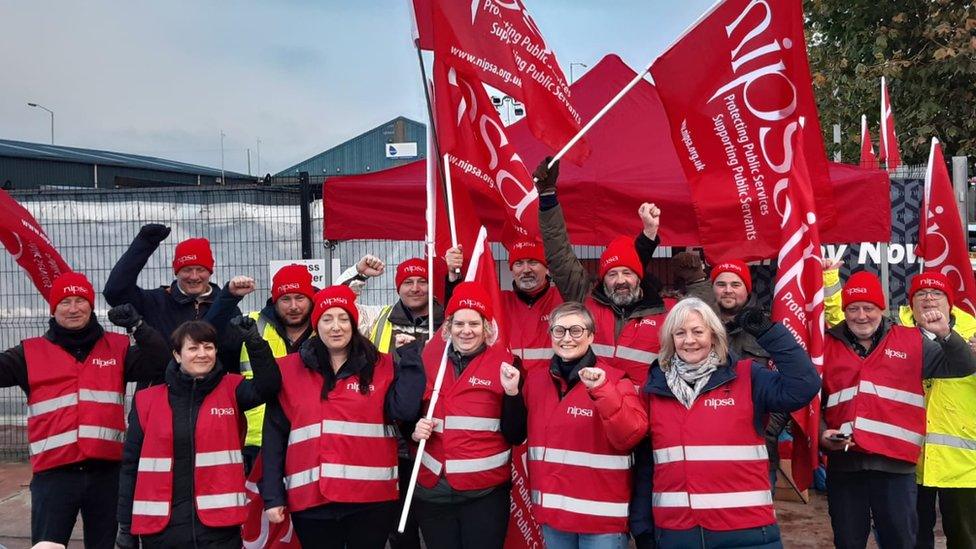Public sector strike: Health bosses warn of 'profound impact'
- Published

The trust chief executives said the strike will cause serious disruption in the already under-pressure health service
The chief executives of Northern Ireland's health and social care trusts say Thursday's planned strike action will have a "profound impact" on services.
In a joint statement they warned that the strike will affect services on a "massive and unprecedented scale".
Tens of thousands of public sector workers are due to walk out on Thursday in a dispute over pay.
Unions say it could be the biggest strike in Northern Ireland's history.
The chief executives of the five regional health trusts, as well as the head of the ambulance service, warned that services were already "under enormous strain".
They said only minimal and emergency services would be available on Thursday.

Thousands of workers across Northern Ireland are expected to strike on 18 January
All health and social care services will be affected, including hospitals, community care and ambulances.
The joint statement called for staff to be "properly rewarded for their work", adding that "much-needed progress" had been hampered by "years of political and budgetary instability".
"As chief executives, we have repeatedly and publicly called for a long-term funding settlement for health and social care in Northern Ireland that addresses central issues including waiting lists, recruitment and pay in a sustainable manner.
"We have been struggling with a system where funding has been allocated on a yearly basis, which makes it impossible to plan for the long term.
"As the extreme pressures on the health and social care service continue unabated, the position is increasingly unsustainable".
The South Eastern Trust's chief executive Roisin Coulter said there was "likely to be an increased risk" to the public on Thursday, but that staff would work to maintain safe services.
The Trust's Medical Director Dr Charlie Martyn said there was "no doubt" that the public would feel the impact on services.
Education impact
Meanwhile, thousands of teachers and non-teaching staff are also taking part in strike action on Thursday.
The Education Authority has said given the scale of the action they expect disruption to be widespread and impacting all service areas.
On Monday evening, the Teachers' Negotiating Council Management Side said it could not make a pay award "because of the budgetary challenges facing education".
"The impact of this action by large numbers of staff, both teaching and non-teaching, will result in severe disruption and potential widespread school closures impacting the vast majority of pupils, including some of our most vulnerable, marginalised, and deprived children," a spokesperson outlined.
"It will not be possible to gauge the full affect until the strike action has concluded but it is expected to be extensive."

A total of 15 unions have announced they will be taking action on 18 January:
British Dietetic Association (BDA)
Charted Society of Physiotherapists (CSP)
GMB
Irish National Teachers' Organisation (INTO)
Society of Radiographers (SoR)
Siptu
National Association of Headteachers (NAHT)
National Association of Schoolteachers and Union of Women Teachers (NASUWT)
National Education Union (NEU)
Nipsa
Royal College of Midwives (RCM)
Royal College of Nurses (RCN)
Ulster Teachers Union (UTU)
Unison
Unite
These unions represent about 173,000 workers, although not all will be on strike.
Related topics
- Published12 January 2024

- Published14 January 2024

- Published13 January 2024
